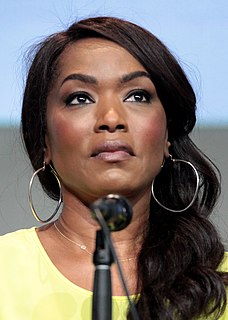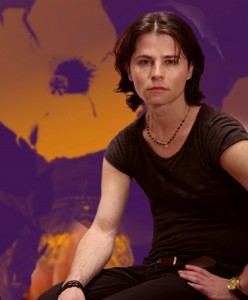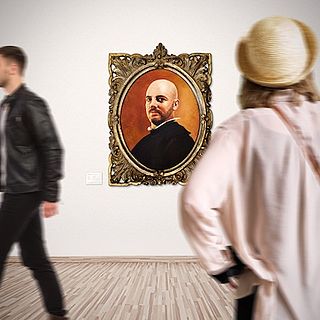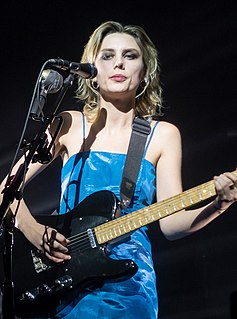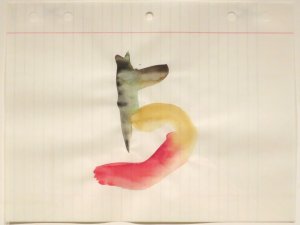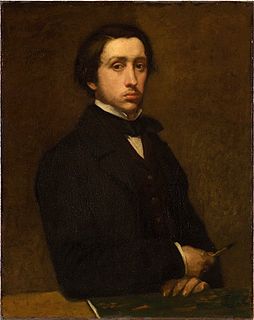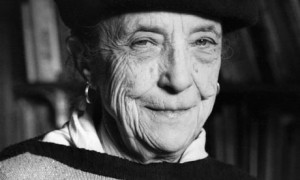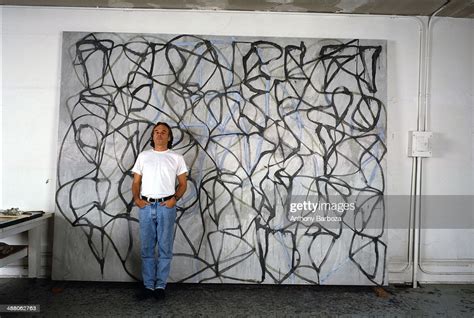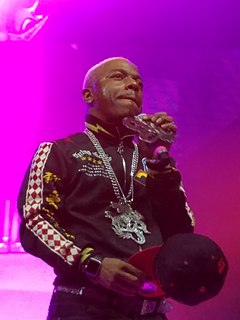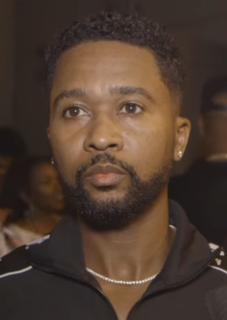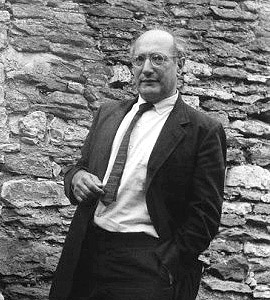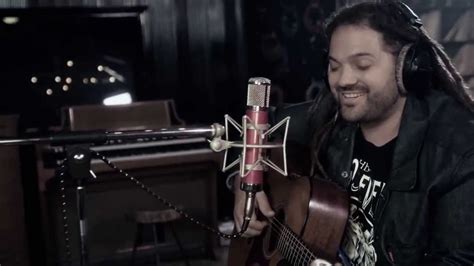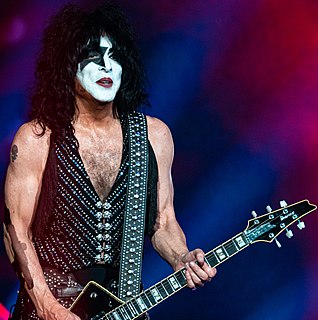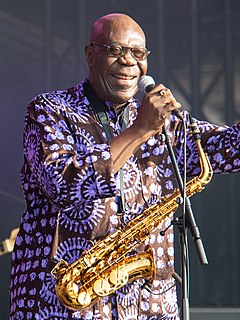Top 1200 Graffiti Artist Quotes & Sayings - Page 17
Explore popular Graffiti Artist quotes.
Last updated on December 22, 2024.
Every artist of importance creates his own world, with its own laws - creates and shapes it in his own shape and image, and no one else's. This is why it is difficult to fit the artist into a world that has already been created, a seven-day, fixed and solidified world: he will inevitably slip out of the set of laws and paragraphs, he will be a heretic.
I remember the first time I was booked into a jazz club. I was scared to death. I'm not a jazz artist. So I got to the club and spotted this big poster saying, 'Richie Havens, folk jazz artist.' Then I'd go to a rock club and I'm billed as a 'folk rock performer' and in the blues clubs I'd be a 'folk blues entertainer.'
You can't always do that which you can do in your sleep. That doesn't fulfill an artist. You're looking for places where you can grow, in some way, whether it's a large way or a small way. I want to grow as an artist, as a person and as a woman. I want to enjoy myself and my life and the company that I'm keeping. I want to bring something to the table that's different than anything else would bring, but that has its place and value, and then keep moving.
One of the major changes in attitude that occurred in the world of art as we moved from the nineteenth into the twentieth century was that the twentieth century artist became more involved with personal expression than with celebrating exclusively the values of the society or the church. Along with this change came a broader acceptance of the belief that the artist can invent a reality that is more meaningful than the one that is literally given to the eye. I subscribe enthusiastically to this.
Clearly the hardest thing for the working artist is to create his own conception and follow it, unafraid of the strictures it imposes, however rigid these may be... I see it as the clearest evidence of genius when an artist follows his conception, his idea, his principle, so unswervingly that he has this truth of his constantly in his control, never letting go of it even for the sake of his own enjoyment of his work.
Art is a kind of innate drive that seizes a human being and makes him its instrument. The artist is not a person endowed with free will who seeks his own ends, but one who allows art to realize its purpose through him. As a human being he may have moods and a will and personal aims, but as an artist he is "man" in a higher sense— he is "collective man"— one who carries and shapes the unconscious, psychic forms of mankind.
To me, that's the biggest problem with hip-hop today is the fact that everyone believes that all of hip-hop is rap music, and that, when you say "hip-hop," it's synonymous with rap. That when you say "hip-hop," you should be thinking about breakdancing, graffiti art, or MCing - which is the proper name for rap - DJing, beat-boxing, language, fashion, knowledge, trade. You should be thinking about a culture when you say, "hip-hop.".
For me narcissism is not about money. For me, narcissism is something so romantic and something so human. Everybody is a narcissist. Some people admit it and some people don't. As an artist, it's important to be a narcissist. Look at Picasso, look at Warhol.... As an artist, you can get away with a lot of things that normal people cannot.
Having people around you that are honest with you, and having a team around you that can actually track and communicate where things are working and where they're not working, is really an invaluable asset to an artist's career. I just see it time and again, people who have no clue about that stuff. It's frustrating, and I see the frustration for them. It's a weird thing being an artist, trying to navigate the music business with little to no help.
I think people always have - not just journalists who help their careers, I think all people struggle with this idea that a female pop artist can write all her songs. Even I do it sometimes, you see a really good female pop artist and you're like, 'I wonder if she writes her songs.' That's never really my first initial reaction to a male popstar.
Working a model liberated me from ever having to hold a day job. I transitioned from doing that to working full-time as an artist. If you're 19 and living cheap, being an artist model can sustain you. I dropped out of college at 21 and my illustration hadn't yet taken off. It is more than working in a store. It is a hard way to make a living but you earn more than in a similarly unskilled job.
If you're going to be a visual artist, then there has to be something in the work that accounts for the possibility of the invisible, the opposite of the visual experience. That's why it's not like a table or a car or something. I think that that might even be hard for people because most of our visual experiences are of tables. It has no business being anything else but a table. But a painting or a sculpture really exists somewhere between itself, what it is, and what it is not-you know, the very thing. And how the artist engineers or manages that is the question.
The artist does not draw what he sees, but what he must make others see. Only when he no longer knows what he is doing does the painter do good things. A picture is first of all a product of the imagination of the artist; it must never be a copy. If then two or three natural accents can be added, obviously no harm is done. The air we see in the paintings of the old masters is never the air we breathe.
Society takes what it wants. The artist himself does not count, because there is no actual existence for the work of art. The work of art is always based on the two poles of the onlooker and the maker, and the spark that comes from the bipolar action gives birth to something - like electricity. But the onlooker has the last word, and it is always posterity that makes the masterpiece. The artist should not concern himself with this, because it has nothing to do with him.
Every artist knows that there is no such thing as "freedom" in art. The first thing an artist does when he begins a new work is to lay down the barriers and limitations; he decides upon a certain composition, a certain key, a certain relation of creatures or objects to each other. He is never free, and the more splendid his imagination, the more intense his feeling, the farther he goes from general truth and general emotion.
The aim of every artist is to arrest motion, which is life, by artificial means and hold it fixed so that a hundred years later, when a stranger looks at it, it moves again since it is life. Since man is mortal, the only immortality possible for him is to leave something behind him that is immortal since it will always move. This is the artist's way of scribbling "Kilroy was here" on the wall of the final and irrevocable oblivion through which he must someday pass.
A work of art does not need an explanation. The work has to speak for itself. The work may be subject to many interpretations, but only one was in the mind of the artist. Some artists say to make the work readable for the public is an artist’s responsibility, but I don’t agree with that. The only responsibility to be absolutely truthful to the self. My work disturbs people and nobody wants to be disturbed They are not fully aware of the effect my work has on them, but they know it is disturbing.
The great artist when he comes, uses everything that has been discovered or known about his art up to that point, being able to accept or reject in a time so short it seems that the knowledge was born with him, rather than that he takes instantly what it takes the ordinary man a lifetime to know, and then the great artist goes beyond what has been done or known and makes something of his own.
I started off doing indie comics that I wrote and drew myself. I was doing those for ten years before I started to work for DC. The first book that I wrote for DC was for another artist. I did some backups in 'Adventure Comics' years ago starring The Atom. That's the first time that I ever wrote for another artist.
I'm a professional artist, that's how I make my living. So I watch the market. There is, it seems to me, a lot of pure financial speculation, and I don't think that's terribly healthy. Though as long as the money is getting back to the artist, I think that's good. I'm very happy younger artists can make money faster than we could. And we were making it faster than a generation before us.
Back in the day, even if they were singing about the same things, each artist was unique. That's why I try to stay away from the big-name producers, so I can prove that it's not about the producer, it's about the artist. A lot of R&B artists have gotten away from being artists and are just chasing after the next hot producer and it all starts to sound the same.
I am an artist. For me, a picture is like poetry. When you make art, this is not coming from an intellectual place. It's coming from the deep side of your unconscious, your soul. And you are like in some kind of possession, where you are doing anything to get the visual. You become another person. You're becoming an artist in action. And then a lot of miracles come. A lot of discovering. It's a very complicated thing.
However contradictory the coroner's report — whether he pronounces Consumption or Loneliness or Suicide to be the cause of death — isn't it plain how the true artist-seer actually dies? I say that the true artist-seer, the heavenly fool who can and does produce beauty, is mainly dazzled to death by his own scruples, the blinding shapes and colors of his own sacred human conscience.
Desire is something very egoistic. If you desire something, you also have to take the consequences of that. You have to study the market and see how it can go. I mean to become an artist... You never get the Nobel-price for example. You can normally never become a millionaire. Very few become millionaires, so the circumstances are very bad if one becomes an artist. And that should be taken into consideration.
And, because my role in society - or any artist or poet's role - is to try to express what we all feel. Not to tell people how to feel, not as a preacher, not as a leader, but as a reflection of us all. And it's like that's the job of the artist in society, not to...they're not some alienated being living on the outskirts of town. It's fine to live on the outskirts of town, but artists must reflect what we all are. … If that's taken it too much on meself, I feel that artists are that - they're reflections of society... Mirrors.
I enjoy doing my work, and I don't want to deal with the other things. When you enjoy doing your work so much, why deal with where to show, how to show, what to do? If the artist finds the right gallery which respects their work and gives them that freedom to do whatever they want to do, the artist can focus on his work.
Why should you think that beauty, which is the most precious thing in the world, lies like a stone on the beach for the careless passer-by to pick up idly? Beauty is something wonderful and strange that the artist fashions out of the chaos of the world in the torment of his soul. And when he has made it, it is not given to all to know it. To recognize it you must repeat the adventure of the artist. It is a melody that he sings to you, and to hear it again in your own heart you want knowledge and sensitiveness and imagination.
I love seeing original cartoons. You get to see the artist's corrections, like erasures or Wite-Out or patches, and you get to see the artist's line in better detail, and what kind of ink they use - whether they like a cold black or a warm black, and what kind of paper they like, how big or small they like to draw - art nerd stuff like that.
To all appearances the artist acts like a mediumistic being who, from the labyrinth beyond time and space, seeks his way out to a clearing. If we give the attributes of a medium to the artist, we must then deny him the state of consciousness on the aesthetic plane about what he is doing or why he is doing it. All this decisions in the artistic execution of the work rest with pure intuition and cannot be translated into a self-analysis, spoken or written, or even thought out.
The idea of using media for expressing yourself artistically is kind of something I learned from my mother and my father. So for me, I think growing up wanting to be an artist, I always imagined myself sort of crossing over or mixing media and so it was a natural evolution for me to try to express in a filmic way or in a visual way. It just kind of seems like a natural sort of progression for me in terms of what I'm trying to do as an artist.
Some people feel that it's controversial if I say that because my dad is known as a political artist. But I don't really believe that he was a political artist. I think some of his songs were political, and I think they were incredible because he was able to make art that was political and that wasn't pedantic. But I think he was unique in being able to do that.
If you go to a master to study and learn the techniques, you diligently follow all the instructions the master puts upon you. But then comes the time for using the rules in your own way and not being bound by them....You can actually forget the rules because they have been assimilated. You are an artist. Your own innocence now is of one who has become an artist, who has been, as it were, transmuted.... You can't have creativity unless you leave behind the bounded, the fixed, all the rules.
If you want to live your life in a creative way, as an artist, you have to not look back too much. You have to be willing to take whatever you’ve done and whoever you were and throw them away. The more the outside world tries to reinforce an image of you, the harder it is to continue to be an artist, which is why a lot of times, artists have to say, “Bye. I have to go. I’m going crazy and I’m getting out of here.” And they go and hibernate somewhere. Maybe later they re-emerge a little differently. (Steve Jobs)
Therein lies the social significance of art: It is constantly at work educating the spirit of the age, conjuring up the forms in which the age is more lacking. The unsatisfied yearning of the artist reaches back to the primordial image in the unconscious, which is best fitted to compensate the inadequacy and one-sidedness of the present. The artist seizes on this image and, in raising it from deepest unconsciousness, he brings it into relation with conscious values, thereby transforming it until it can be accepted by the minds of his contemporaries according to their powers.
Too often in the past, we have thought of the artist as an idler and dilettante and of the lover of arts as somehow sissy and effete. We have done both an injustice. The life of the artist is, in relation to his work, stern and lonely. He has labored hard, often amid deprivation, to perfect his skill. He has turned aside from quick success in order to strip his vision of everything secondary or cheapening. His working life is marked by intense application and intense discipline.
I used to always throw in random questions. I'd have to ask about artist's single and their writing process, which I know is every artist's most-hated question, like, "Well what was ,your process?" And it's. like, "Well, I wrote this album." And then at the end I would throw in, like, "So, Seinfeld or Simpsons?" and they'd be so thrown, because everything else could be autopilot. All my greatest moments were from the most sporadic questions.
It is the poet and philosopher who provide the community of objectives in which the artist participates. Their chief preoccupation, like the artist, is the expression in concrete form of their notions of reality. Like him, they deal with the verities of time and space, life and death, and the heights of exaltation as well as the depths of despair. The preoccupation with these eternal problems creates a common ground which transcends the disparity in the means used to achieve them.
She became politically conscious thanks to Studs Terkel and the radio. She started reading all the books we brought home from college and was a great fan of Noam Chomsky. She was a real lefty and yet was not able to meet her dream of becoming an artist. She got drafted into motherhood big time - seven kids - and that wasn't the life that she had planned. So she opened the path so that I could be the artist that she wanted to be.
Every artist, every scientist, must decide now where he stands. He has no alternative. There is no standing above the conflict on Olympian heights. There are no impartial observers. Through the destruction, in certain countries, of the greatest of man's literary heritage, through the propagation of false ideas of racial and national superiority, the artist, the scientist, the writer is challenged. The struggle invades the formerly cloistered halls of our universities and other seats of learning. The battlefront is everywhere. There is no sheltered rear.
No longer can we consider what the artist does to be a self-contained activity, mysteriously inspired from above, unrelated and unrelatable to other human activities. Instead, we recognize the exalted kind of seeing that leads to the creation of great art as an outgrowth of the humbler and more common activity of the eyes in everyday life. Just as the prosaic search for information is "artistic" because it involves giving and finding shape and meaning, so the artist's conceiving is an instrument of life, a refined way of understanding who and where we are.
It's never the same relationship. I see my job as filling in the blanks. Whatever it is that the artist lacks in the process of making a record, I'm supposed to fill that in. And sometimes it's a lot of stuff and I have to hector them about working on the material and that sort of thing. Sometimes you have an artist that's really fairly self-sufficient; they just need another ear to offer some objective criticism, but otherwise pretty much know what they're doing. It varies a lot.
Quentin Tarantino is a hip-hop artist. I told him, "You're hip-hop!" You keep seeing surprises, and a clip here and there, because Quentin is hip-hop. A hip-hop artist will drop a single, leak something over here, and drop something over there 'cause he knows it's hot. He's on the spot with the way he does things.
I said earlier that I do not believe an artist's life throws much light upon his works. I do believe, however, that, more often than most people realize, his works may throw light upon his life. An artist with certain imaginative ideas in his head may then involve himself in relationships which are congenial to them.
I'd never met a woman I considered as intelligent as me. That sounds bigheaded, but every woman I met was either a dolly-chick, or a sort of screwed-up intellectual chick. And of course, in the field I was in, I didn't meet many intellectual people anyway. I always had this dream of meeting an artist, an artist girl who would be like me. And I thought it was a myth, but then I met Yoko and that was it.
Quentin Tarantino is a hip-hop artist. I told him, 'You're hip-hop!' You keep seeing surprises, and a clip here and there, because Quentin is hip-hop. A hip-hop artist will drop a single, leak something over here, and drop something over there 'cause he knows it's hot. He's on the spot with the way he does things.
The great thing about doing art shows is you get to meet the people who are interested in your art, and I think that when you're purchasing a piece of art it's a tremendous bonus to get to meet the artist because you get a chance to pick their brain a bit and find out first hand what the piece is about for the artist.
Well you can see that I'm still in motion. It happens that you share the music with the audience. That is the best happiness an artist can have. I'm not alone on stage but with a group of musicians. So the more the music is successful, the more the audience feel happy about the music. It's the responsiblity of an artist to make his fans happy. That is proposition. I'm always talking about proposition.
I ended up writing songs and growing up in public with my songwriting. And it's a good thing for me back then: in the early '70s, there was a thing called artist development, where an artist could find his feet, find himself, find his voice. I think I made five or six albums before I sold five or six albums.
What an artist does, is fail. Any reading of the literature, (I mean the literature of artistic creation), however summary, will persuade you instantly that the paradigmatic artistic experience is that of failure. The actualization fails to meet, equal, the intuition. There is something "out there" which cannot be brought "here". This is standard. I don't mean bad artists, I mean good artists. There is no such thing as a "successful artist" (except, of course, in worldly terms).
I am an idealist. I often feel I would like to be an artist in an ivory tower. Yet it is imperative that I speak to people, so I must desert that ivory tower. To do this, I am a journalist - a photojournalist. But I am always torn between the attitude of the journalist, who is a recorder of facts, and the artist, who is often necessarily at odds with the facts. My principle concern is for honesty, above all honesty with myself.




